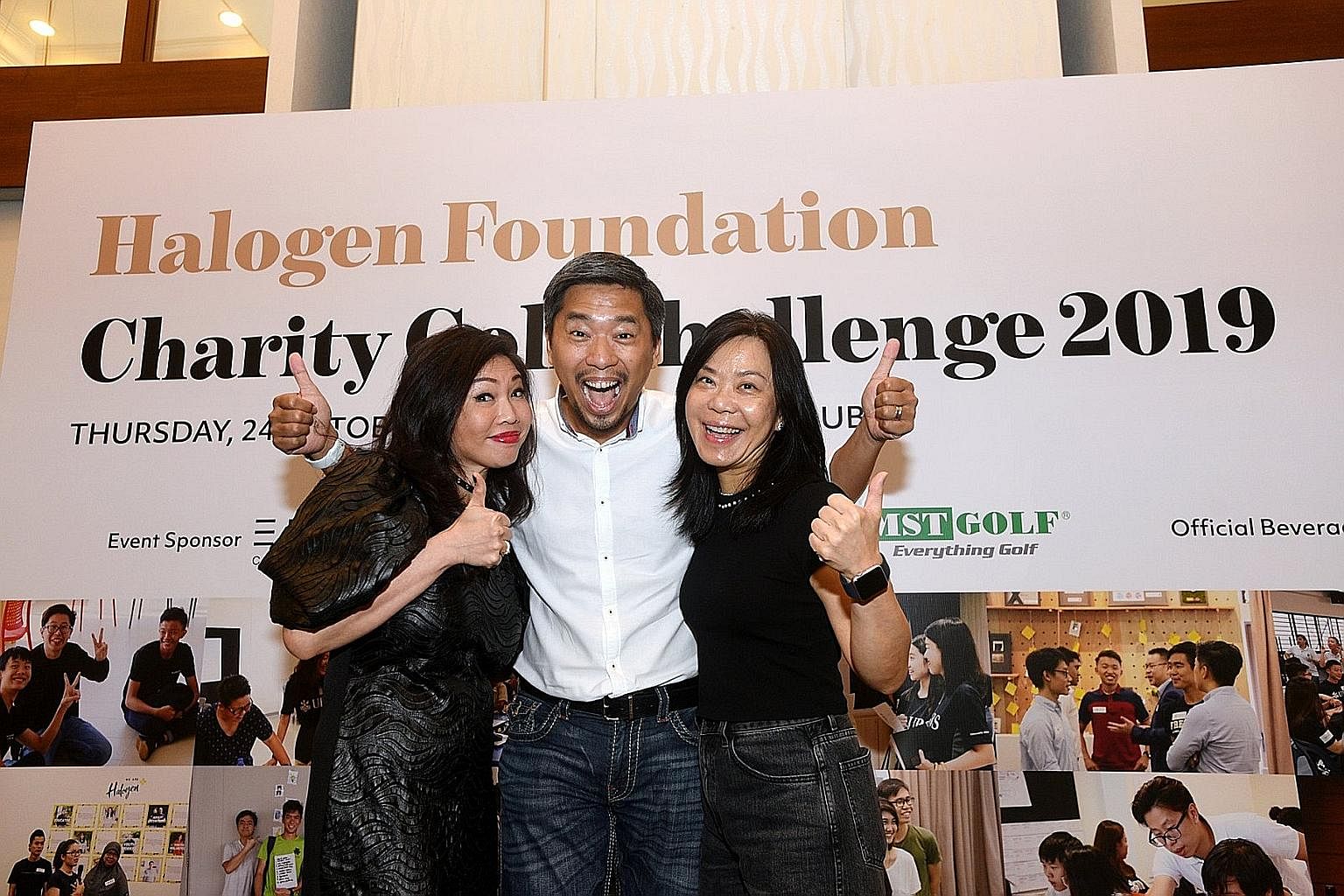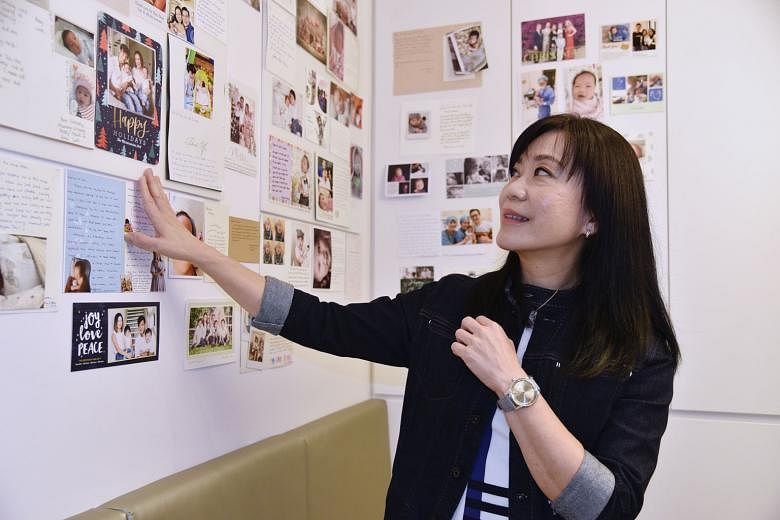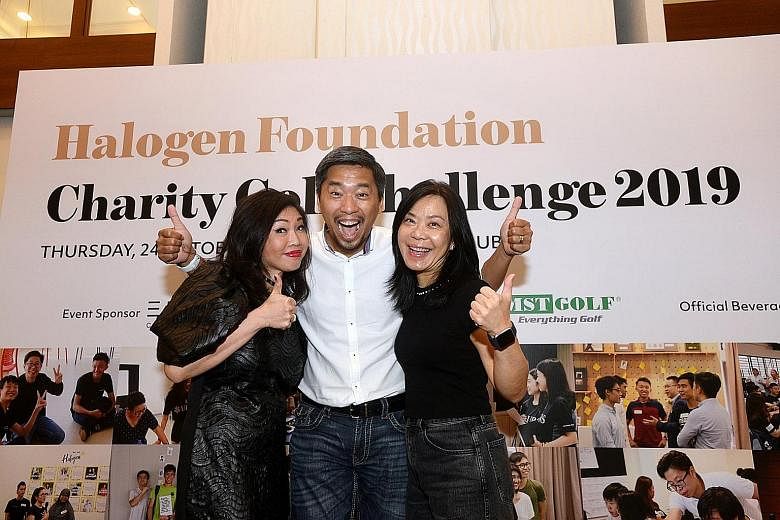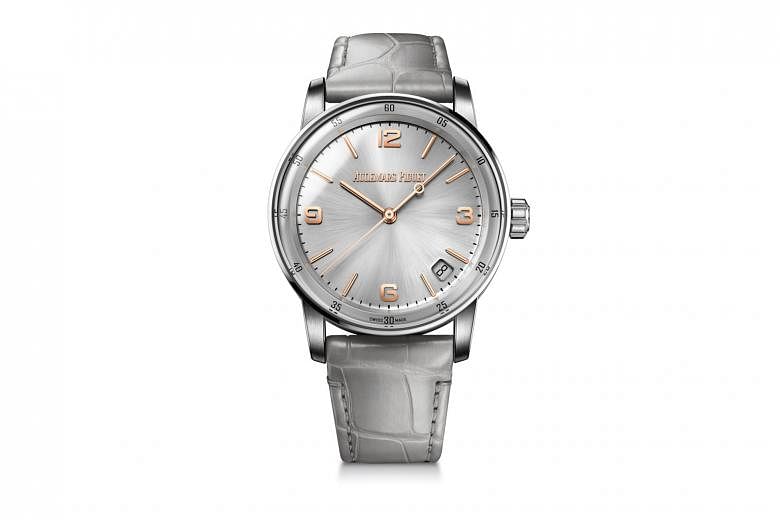As a popular obstetrician and gynaecologist, Dr Ann Tan is always busy. The last few months of the year, however, are especially hectic.
Asked why, she grins and replies: "New Year resolutions? Many people say: 'I must get pregnant this year' so they start from Christmas and January."
Covid-19 and the circuit breaker in Singapore will probably also mean more expectant mothers in the months to come, she reckons.
"More people are trying, and what we are going through makes people think of life more and they want to have more kids," she says.
Dr Tan, 58, has delivered thousands of babies over the last three decades. "I deliver about 15 a month," she says.
Also a well-known fertility doctor, she has helped many couples conceive too. In fact, she is an advocate of social freezing - of both eggs and sperm - which she believes is especially crucial in Singapore, which has one of the lowest fertility rates in the world.
The total fertility rate (TFR) here is 1.14 children per female in 2019, well below the replacement level of 2.1. It is, however, illegal for women to freeze their eggs in Singapore except under special medical circumstances, such as when they have to undergo chemotherapy or radiotherapy, because these procedures could damage their eggs.
Her reasons for being a freezing advocate are simple. "Singapore's population is going the other way and our people are not going to get married any earlier. They are just going to get married later and later," she says, citing reasons like career, the right partner and cost of living.
If the law remains inflexible, we will continue to lose the fertility years of a couple, she says. "So I want eggs, good ones. And good sperm too," she says with a giggle.
The former chief of fetal maternal medicine at the Department of Obstetrics and Gynaecology at the Singapore General Hospital (SGH) and now the founder of Women Fertility & Fetal Centre, she just wants to "help patients achieve their dreams of having healthy babies".
Unassuming and chatty, Dr Tan is the second of three children of a lawyer and an academic. Her late mother - Singapore's first and only female chemistry professor - was originally from Hong Kong.
"My maternal grandfather was a comprador; he had six wives and 19 children," she lets on.
She adds: "My parents met on the slow boat to London. She was going to study at University College London, and he at Gray's Inn."
Dr Tan's growing-up years were spent in the Fernhill area, just off Stevens Road.
"Mom was always the top girl in school so she was always nagging us about our studies and expected us to do well," says the former student of Singapore Chinese Girls School, whose elder sister is also a doctor and her younger brother, a computer engineer.
She certainly did well, clinching a Public Service Commission scholarship to study medicine at the National University Of Singapore.
In medical school, she tinkered with the idea of becoming a cardiologist but obstetrics and gynaecology (O&G) won because, in her naivete, she thought all births were happy occasions.
Her aunt, Dr W.K. Tan from Thomson Medical, also inspired her. The veteran gynaecologist - one of Singapore's most famous - is still extremely sought after, and apparently delivering the grandchildren of some of her patients.
Like her mother and aunt, Dr Tan is no slouch when it comes to achievements.
After graduating from NUS in 1986, she started working at the Singapore General Hospital. Five years later, she became a member of the Royal College of Obstetricians and Gynaecologists of the United Kingdom and also received her Master of Medicine in Obstetrics and Gynaecology.
The first Singaporean to hold a Diploma in Fetal Medicine from the Fetal Medicine Foundation in London, she has also won a slew of awards including the Young Investigator Award by the International Society of Ultrasound in Obstetrics & Gynaecology in 1995.
Also in 1995, she won a Health Manpower Development Plan award to go on a clinical attachment for fetal echocardiography - the diagnoses of heart conditions in the foetus - at the prestigious Yale School of Medicine in the United States.
By then married to a businessman, she says the year-long attachment was an eye-opener, exposing her to research and the handling of critical cases.
"I've never seen so many ICU cases in my life," says Dr Tan, who tended to, among others, expectant mothers who were also drug addicts.

She came back to find herself heading the fetal maternal section in SGH's O&G department as many consultants had left.
"It was a steep learning curve but it was also good for me because everybody was trying to teach me everything," she says.
Many high risk pregnancies came her way and she recalls delivering babies which weighed just 500gm or with abnormalities such as lung effusion, a condition also known as "water on the lungs".

After 15 years at SGH, she struck out on her own.
There is deep satisfaction in being able to help people as a gynaecologist, she says.
"When you help someone overcome uncertainties and lead them to a happy outcome, it's really nice, such a good thing."
But it can be extremely traumatic and difficult when the pregnancy is high risk and difficult.
Candidly, she admits to sometimes getting emotionally affected.
"It can be really bad but I can't show it. It can get quite schizophrenic every day. With one patient, it's 'Oh, you just got pregnant. I'm so happy for you.' And the next one: 'I'm so sorry, but your baby has an abnormality or you just had a miscarriage,'" says Dr Tan, who was the first to introduce the First Trimester Pregnancy Screening in Singapore in 2003. The screening gauges the risk of the foetus having Down syndrome or other birth defects.
Despite her years on the job, breaking bad news - of abnormalities, difficulties, miscarriages - does not get easier.
"It can be very painful," she says.
Because she has gone on such intimate and personal journeys - involving joy, grief and every emotion in-between - with her patients, many of them have become good friends. The walls in her office are plastered with photos and Thank You cards from women and couples whom she has helped to become parents.
Seeing the pain many women go through has led her to become an advocate for social egg freezing. A woman, she says, is at her most fertile in her late teens and 20s, after which her fertility and the quality of her eggs start to decline
"At 40, your chance of getting a normal egg is one to two in 10. At 45, it is closer to one in 15 or 20. By the time you're 50, it's going to be very hard," says the mother of three children aged between 20 and 26.
It worries her that she is also seeing an increasing number of young women - some in their late 20s - with egg banks that are equivalent to a 40 year old's.
"But they may not be in a financial position to get married, or they haven't found the right partner, so how?"
"You cannot change the fact that women are getting married later, and have to push their fertility wishes later. What I'm saying is, just give them the option, let them choose."
She is only too familiar with the pain many women feel about their inability to conceive.
"Some are high up in their career, they do very well. They can control everybody and everything in their life but they can't control their fertility. It really drives them a bit batty,"
While she understands that Singapore's policy on egg freezing is in place to deter issues like single motherhood, she believes women should have the right to safeguard their ability to become mothers of healthy babies later in life.
Right now, local women go abroad to freeze their eggs. For instance, Singaporean actress Ase Wang, 38, revealed in an interview two years ago that she had her eggs frozen in Bangkok because she wanted to keep her options open and embrace motherhood when she was ready.
"I'm sure that if they had a choice, many of these women would have preferred to have their eggs frozen in Singapore because they trust the system here."
Egg freezing is a conversation which needs to take place, she says.
Talking about it, she believes, could lead women to think more about their fertility. Many, for instance, do not know that procedures to remove cysts and fibroids in their wombs could affect their egg bank.
"Talking about it may prompt a woman to check her egg bank and decide to have children now to avoid unnecessary risks and complications later in life," she says.
Lest men think it does not concern them, Dr Tan says the quality of a man's sperm declines with age too.
Studies have shown links between older fathers and autism in children, she says.
"I really need people to understand I push this from a place of the pain I feel for patients. Fertility should be personal and informed," she says simply.
Dr Tan - who serves on the board of the Health Promotion Board's Women's Health Committee - is also committed to social work.
A former president of the Singapore Council of Women's Organisations, she has worked for various women's issues including domestic violence and the use of the baby bonus in antenatal care. She was awarded the Public Service Medal in 2012 for her work in the organisation.
Since 2013, she has been a board member for Halogen, a not-for-profit institution which reaches out to disadvantaged youth. She has been involved in several projects here, including the Network For Teaching Entrepreneurship programme, which teaches young adults entrepreneurial skills
"It's all about giving back. At Halogen, I'm here to make the lives of these kids better. I tell people my role is chief beggar," quips the doctor who is also an active fundraiser for the organisation.

She enjoys her life and her work, she says.
"I consider children as blessing and I'm not trying to play God. I'm trying to help women and men use medical ability to help them achieve their desire for children. But I can never promise anyone success as it is not mine to give."
This is the first of a four-part Audemars Piguet series on rule breakers who thrive on challenges and boldly forge their own paths.






